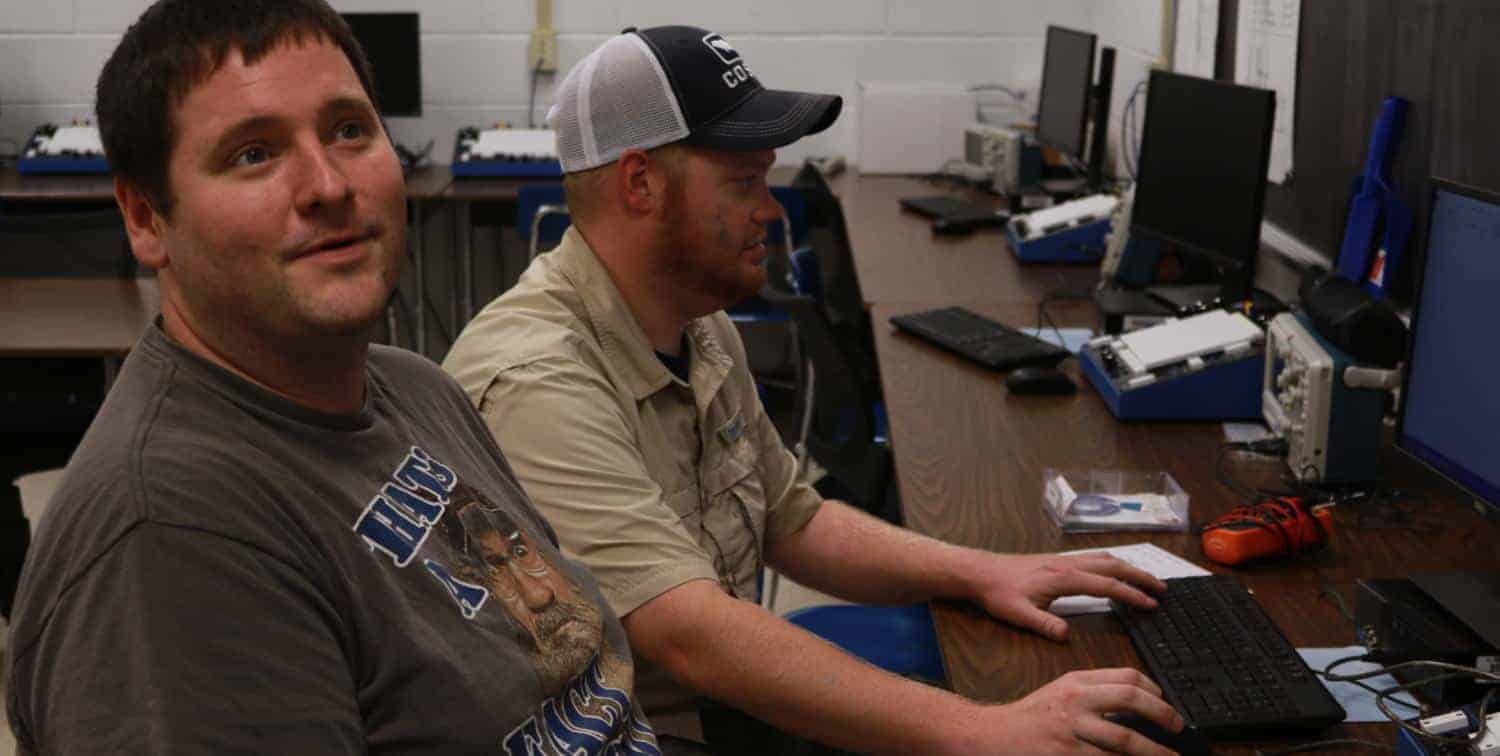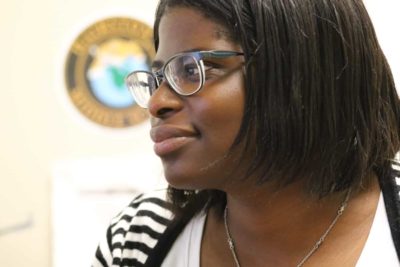With the closing of plants and loss of jobs in Rutherford County during the past decade, students in the area often do not associate manufacturing with success. Isothermal Community College leaders want to change that by giving college experiences to more high school students.
“It certainly has gotten a bad name in the last 10 years, and then a lot of damage (has been) done by the job loss and the unemployment” said Joe Looney, dean of Isothermal’s School of Applied Sciences and Engineering Technology. “This is part of helping to teach people that manufacturing is not what it used to be.”
Isothermal is launching a new early college program called i-TECH in the fall when about 20 high school juniors and seniors will start courses around mechanical engineering on campus. The program lasts the final two years of high school and an additional year after. Students will graduate with an associate’s degree in the mechanical engineering pathway of their choice.
Local jobs in fields like advanced manufacturing have higher wages than manufacturing jobs of the past, Looney said, and require a higher level of skill.
“How do we prepare people for that?” Looney said. “We’re part of that solution in the region.”
Isothermal President Walter Dalton said the program, partly funded through an Appalachian Regional Commission (ARC) grant, is something new — different from early college and different from dual enrollment offered through the statewide Career and College Promise (CCP) fund.
“They are dually enrolled, but it’s far more than that,” Dalton said. “… The early colleges have been around now about 10 years, and have been very very successful if you look at the completion rates, the college-going rate. How do you get that to scale? CCP was the next step in it. But I think this takes it even to a higher, better level.”
Since 2005, Reach High School has operated as an early college on Isothermal’s campus, with a 100 percent graduation rate each year. Eighty percent of students graduate high school with at least one associate’s degree.
Because of the high school’s success, Rutherford County Schools and Isothermal administrators were searching for a way to create that experience for more students in the district. Though CCP was available, they wanted to go a step further.
Collaboration between Isothermal and the school district was a big part of developing i-TECH. The district will provide transportation to the community college for i-TECH students for the first year of the program. David Sutton, Rutherford County Schools’ assistant superintendent for curriculum and instruction, said he remembers the dilemma the early college model brought to the county.
“That’s wonderful, but it raises another obvious organizational, professional, and ethical challenge, which is, ‘Ok, if creating these college connections and college experiences is so very good for students at an early college, then what about all the children who aren’t at an early college?” Sutton said.
Sutton said the two organizations came together to create pathways for students that guide them through scheduling and map different course sequences — making opportunities created by CCP more accessible and tangible. The mechanical engineering sequences i-TECH students will select are some of those maps. That process, Sutton said, was not always easy.
“The truth is that in North Carolina the K-12 system and community college system were never really engineered to work in concert with each other,” Sutton said. “They were built as sort of independent systems… To create the kind of partnership that we have requires a real sense of earnestness and tenacity.”
Dalton said the mechanical engineering sequences were thoughtfully developed so students had several options but were not overwhelmed by all that is available. The i-TECH tracks include two manufacturing technology options — machining and manufacturing — and three mechanical engineering technology options — mechanical engineering technology, mechatronics, and mechanical drafting. The general mechanical engineering technology associate’s degree, Looney said, is the most transferrable to four-year universities like Western Carolina University and UNC-Charlotte.
i-TECH students will have on-campus access to equipment they would not be able to work with in their high schools. They will also be included in extracurricular events and community outreach with the rest of the community college’s student body.
The courses will mix traditional instruction with project-based learning. Looney said several regional employers have expressed interest in the program and its future graduates. As more connections with industry are made, Looney plans to seek project ideas from employers.
“If the students understand that it’s relevant and that they can apply this, they’re much more likely to really apply themselves to learning that and to getting engaged,” he said.
Looney is hopeful about the growth of the program and expects around 30 new students next year. He said, even as the ARC grant money goes away, the program is financially sustainable. Dalton said he recently received a call from a mother moving to town from Atlanta, Georgia, who wanted to make sure her son was taking the appropriate high school courses to participate in i-TECH. He stressed the broader community impact a program like i-TECH could have.
“We also see it not only as a way to educate our students and get them those skills but, by doing that, we think it will boost, in the long-run, the economy of this area,” he said. “More good jobs are likely to come. More of our students are likely to stay in a rural area and invest in the area where they grew up. That’s why we think it’s very important for Isothermal and particularly this area.”
Sutton, who spoke on the district’s digital learning strategies at an Energizing Rural North Carolina conference earlier this month, said student outcomes have improved drastically in recent years compared to schools in regions similar economic hardship.
“That is about digital learning, but it’s also about this broader commitment that we’ve talked about … around preparing kids for college and career success,” Sutton said. “That’s not a conversation that just echoes around the halls in this building. It’s one that echoes through the halls of all of our school buildings.”



